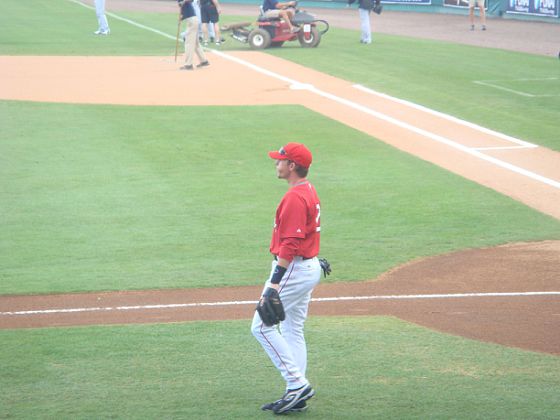Michelle Musler is miserable, and has every right to be. She is paying $975 per game to sit behind the Knick bench and watch her favorite team stink out the joint, every night. Now that the Garden has been fully renovated, she is squeezed in the middle of a 22-seat, debris-filled row with no aisle in sight. She can’t get in, she can’t get out. She can’t cross her legs. In front of her, a zillion Knick assistants, whose jobs are unclear, stand or fidget in her way. One of them accidentally kicked his metal folding chair back onto Musler’s shin during the Indiana playoff series last May, cutting her leg.
So Musler literally bleeds for the Knicks, and can back up that assertion with $312 in medical bills. She is 78 years old and has been a season ticket-holder for 36 years. She probably won’t live to see her team win another championship. None of us will.
“This might be it. This might be it,” Musler said, expressing her ritual doubts about renewing her ticket package in the spring. “Forget the players and the coaches. The management of this team is absolutely, absurdly incompetent and getting worse and worse by the minute. If it were a real business, it would have gone bankrupt long ago. There is no hope.”
Musler says she might stop commuting from Stamford, stop paying the ridiculous prices, stop sitting next to the dilettante corporate types who only care about which Hollywood star is freeloading in the front row on any particular night.
Except that she’s only kidding herself. Musler won’t stop coming, of course. None of them ever stop coming. New York fans are as addicted and dumb as they get, which is why the Daily News this year celebrates these 2013 martyrs as our collective Sportsmen and Sportswomen of the Year. Step right up, bend over and get kicked in the pants one more time. You’ve earned it.
Clearly, New York fans love the abuse. It was a terrible, horrible year for our sports franchises. The Yankees didn’t make the postseason. The Mets will never make the postseason, no matter what Sandy Alderson promises. The Giants, Knicks and Nets were supposed to be good, but instead are dreadful. The Jets were supposed to be awful and are merely bad, which is considered a triumph of sorts.
The three hockey teams range from barely mediocre (the Rangers) to disappointing (Devils) to pathetic (the Isles). The Red Bulls recorded the best record in MLS, then got knocked out in their first playoff series. Coaches have been dismissed, or are on the brink of dismissal. Alex Rodriguez is still hanging around, depressing everyone.
Yet the fans still come, and pay too much. They come to Section 203 at Yankee Stadium, where the Bleacher Creature known as Kinicki regularly ruins his shoes from the floods in the front row. They come to the Jet games to fill the top rows of MetLife Stadium, where it is nearly impossible without binoculars to discern whether Geno Smith just threw another interception.
They come to watch the Rangers fail to score goals. They come to observe the Nets get out-rebounded. They come to behold the Mets fall out of the NL East race by mid-May, in yet another rebuilding year.
There is no stopping, no discouraging the New York fan. Consider that the woeful Knicks stand third in the NBA, with an average attendance of 19,812 — playing to full capacity. The Nets, in a smaller arena, are doing just fine, drawing 17,173, or 94.9% capacity.
The Yanks boasted the fourth-highest attendance in Major League Baseball in 2013, with 3.28 million. The Mets drew 2.14 million, despite lacking a functional outfield. More than 5.4 million fans reportedly paid real American dollars to watch these two ballclubs combine for a 79-83 record at home.






